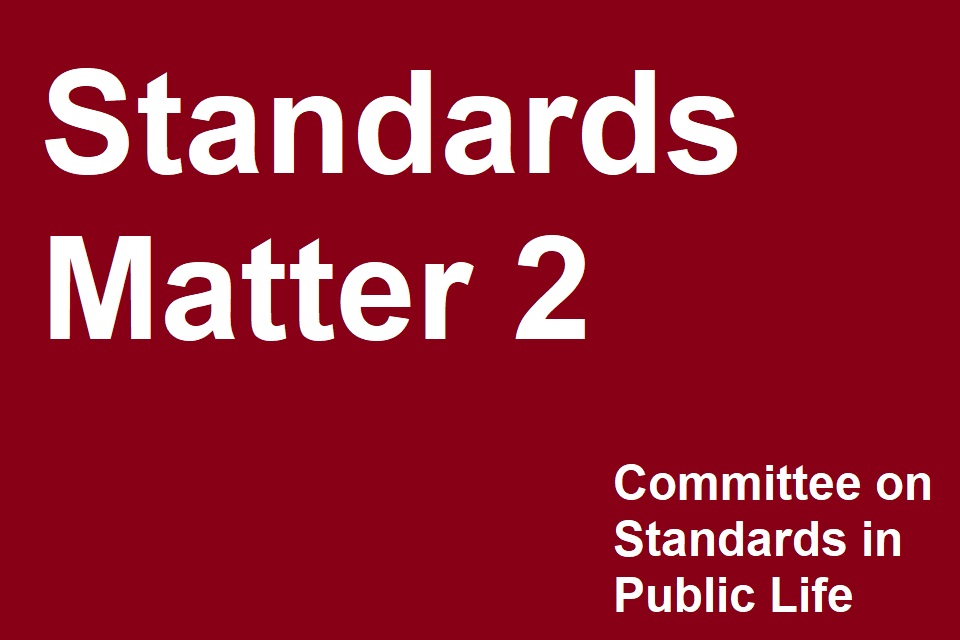
The Seven Principles of Public Life - integrity, objectivity, selflessness, accountability, openness, honesty, and leadership - were first articulated by the Committee on Standards in Public Life, which I chair, in 1995. The principles are not a general moral code, but a set of ethical responsibilities that outline the expectations of public office. Through the integration of the Seven Principles into the Codes of Conduct for MPs, Ministers, councillors, civil servants, and many other public officials, these values form a vital - if often overlooked - part of our constitutional arrangements.
High standards are a public good. They improve predictability and promote better outcomes for society, increasing public confidence and the functioning of the economy. Public office is not simply defined by democratic election or taxpayer funding. It is defined by a shared set of values, encapsulated by the Seven Principles, which outline our expectations of any public sector decision-making process. Good decisions, and decisions that the public sees as legitimate, are ones that are made in a selfless, honest, and objective way, and decision-makers should be seen to be open, to have integrity, to be accountable, and to show leadership in demonstrating these values.
The Seven Principles are embedded in public life through a number of policies, processes, and institutions.The Committee advises the Prime Minister on that framework - the regulatory arrangements that ensure that all public officials, and all those delivering public services, uphold the Seven Principles in practice. In the past 25 years, CSPL’s inquiries and reviews have brought about widespread institutional and procedural change, including the creation of a number of new regulators and reforms to the Ministerial Code, arrangements in local government, and public service delivery, amongst others.
The regulation of ethics and propriety is not static. The issues before the Committee in the 1990s and 2000s mostly concerned financial scandals involving individual MPs and appointments to the boards of public bodies, beginning with the 'Cash for Questions' affair and reaching fever pitch with the expenses scandal. But since then, perhaps due to stricter regulation and greater transparency requirements, other concerns dominate. Bullying and harassment, the so-called "revolving door" between the public and private sectors, and the intimidation of our elected representatives and others in public roles have come to the fore.
These new concerns, along with the immense changes to our state and society that both Brexit and the Coronavirus will bring, mean the time is right to take a fresh look at our nationwide arrangements for regulating ethics and standards. Institutions established in the 20th century may face new and different challenges in the politics of the 21st. That is why today the Committee is launching a new landscape review, Standards Matter 2, which will evaluate the strength of the institutions, policies and processes that enforce and uphold the Seven Principles of Public Life in Westminster and beyond.
The Committee undertook a similar holistic review in 2013 - the first Standards Matter report - and this review will also build on our research published last year that mapped England's standards institutions. We have launched a public consultation, particularly seeking input from those with first hand knowledge and expertise of the UK's system of regulating public standards, and have published a survey for public officials for their views on how well their organisations live up to the Seven Principles in practice. We will also be carrying out research with the public to make sure we understand their expectations of those that serve them. We will report to the Prime Minister in September 2021 with our recommendations and best practice guidance.
Most importantly, this review will stress the importance of high standards in public life. The Seven Principles articulate the values that create a well-functioning, legitimate, and democratic public sector. Our review will examine the structures in place to defend those principles - whilst also continuing to make the case for high ethical standards themselves. Times change, but the need for high standards remains constant.
Read the press release for the review here.
